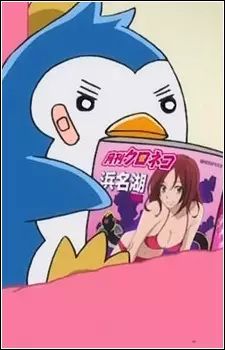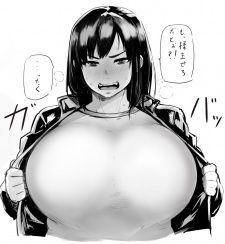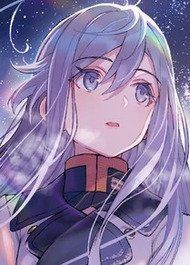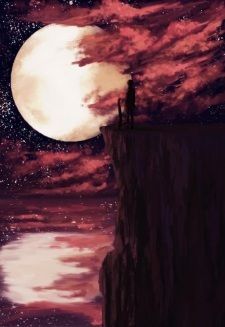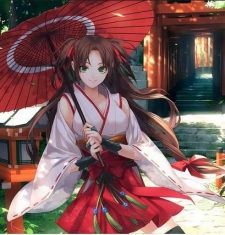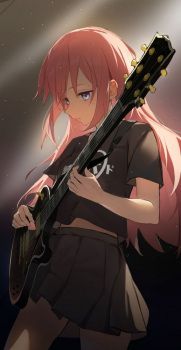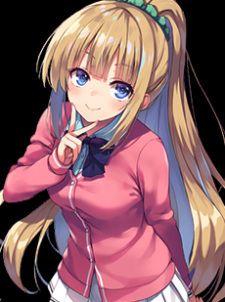Historical fiction is a famous way of telling a journey behind different decades, at the same time it corresponds to names and real events of ancient times, they show us a different perspective of situations, as even putting elements that are only incorporated into books / series / animations they also fulfill a part of making concepts true to history, historical fiction presents viewers with a story that takes place during a remarkable period in history and generally during a significant event during that period, as the name says " historical fiction "is linked to the medium of entertainment that is not closeto reality, also bearing the fact that many mangaka's are free to use frantic action to hook readers and tell their own story, if you have read Kingdom, Historie, Altaïr already must note this, so there is no discrimination behind this subject unless there is some kind of person who is unaware and has started consuming stories in 201X, not to know the difference of this medium and to say the bigbrain in any historical fact.
Since many Seinen's adaptations have often failed to capture strong anime entertainment for years and still living with traumas like Berserk (2016), there is a rallying cry in 2019, and he comes from Denmark with a rich worldbuilding, Vinland Saga. tells a story about humans, yes, it's a story about humans. In fact, humanizing characters without leaving the model is a difficult game that few authors can play, but here is solid and with more convincing motivations, note the passion of an author to build their established characters in a risky situation, but I will address more of this soon.
You may already be tired of the same protagonist wanting revenge and training for years in a place that only serves to bring together the strongest heroes and thus accompany his journey, but I ask you to forgive this attribute used here, even if it is a cliche In fiction, the important thing between stories is knowing how to use this cliché, it all depends on its use. Thorfinn is not the typical protagonist who will train for years, he is a child who lived growing up in battles and that was shaping his personality, the environment in which he lives turning an innocent child into a cold killer, but what's different about that? Thorfinn has not joined the heroes, he is accompanying his own enemy on this journey and coexists with himself without a mere sense of empathy, just wanting revenge on a fair duel, which was something his father did not have, he fights for an honor Blind, I have never seen a protagonist going through this same situation, at least in the first line I recite his journey, and of course Thorfinn is not an intelligent person who will manipulate everyone around for revenge, he is an empty man in search of a futile goal, while defending that honor, he's a hypocrite, and that's great, but all I mean is Vinland Saga is not a story of revenge.
Usually a focused plot where only the protagonist needs to carry the whole plot (when you don't have a solo focus) becomes a failed plot and often full of labels, but there's none of it here, Thorfinn doesn't have to carry everything around it. , that's why there is a deuteragonist, the one who suffers the actions of the plot, Askeladd, but I wouldn't say that only he carries the plot as much as Thorkell and Canute did, further expanding the situation from a survival journey to a political plot. completely closed. The way the script goes on, wasting no time on futile things is impressive, usually 2nd cour of ordinary anime would decay the plot, but here it all enriches it, bringing study of characters and themes that become tangible as it is being done.
In directions to the themes of pacifism, love, slavery, and war by character building, Vinland works, Askeladd as the one who leads the subject of slavery, in a more isolated episode and at the same time how understandable it can become. to the characters, just as Askeladd criticizes a person using his slavery analogy this becomes referring to Thorfinn himself who is a slave to his revenge, and this follows him to the end, as Thorkell is a battle slave, Canute a slave to comfort, Sweyn a slave to the crown, and even Askeladd himself to be a slave to his past, making every action taken be by the dearest person in his life: his mother. Love in vinland is divided into several stages, making it a broad theme, we have all its introduction in episode 12, in a speech with the Danes themselves, until we follow a solid construction and where all believed love is destroyed in the perspective of Willibald episode 14, yes) and this resumes the character criticizing his own faith for lack of love, until it comes to Canute who after an act of loss questions himself about what it is to love, and every form of love is led to love for all living things, but what can this interconnect with the other theme? It is linked to pacifism, said as a form of someone who seeks not to discriminate or kill others, it relates in a way that is not pretentious but natural, because every action has its consequence, and Vinland brings these consequences, every theme of pacifism. it can be contained in a single arc as shown in the Thors-focused prologue to history, as a consequence of a person who has chosen a middle way of living suffering for the politics and culture of an age, as if the past itself haunts him to the point of your peaceful life crumble.
Vinland's approach to and criticism of the war is very well designed, relying on the contexts and substances he himself put in the path, we follow Thorfinn's self-destructive journey in the beginning to see how this war has a physical and mental consequence. to the protagonist, I admit that glorification of war is a difficult subject to address in fiction, but Vinland makes it possible and cohesive, a presentation to all human carnage and victims' perspectives on war (episode 14, yes, again), even if he makes some war points more "epic" attention he deconstructs every archetype when characters like Canute and Willibald are inserted, we have a more advanced and mature worldview on the subject, just as Thors fled the field thinking of his family and seeking to live peacefully stunned from the pain of battle, Canute thinks of all the people of the world, yet living in battle, tries to reconstruct the meaning of pacifism and move on against this war, the way no one loves anyone, and how men fight for something so futile, given all the experience Canute has had in his life and in the countryside. the whole direction of episode 18 overshadowing the battle between Thorfinn and Thorkell is a directional aid and shows how the director understood the manga theme, all that battle is futile, the characters criticize it, so it wouldn't be fair to split these two Focusing on parts, this is why in sparking the battle Canute's criticism becomes concrete, why do we yearn so much for something the author wants to criticize? This is a question that needs no answer, just think, it is rare for anime to do this in a sensitive way and there is substance here to describe it, the way they humanize the Vikings and at the same time critique them, the same Vikings. who call themselves warriors but when cornered surrender and do not touch their own swords, destroying any archetype of honorable Nordic warrior, the fact that they criticize Ragnar for being a coward but being the only one not to abandon his sword even at the last minute, a warrior which can sometimes be one who never forsakes his sword as well as one who fights for a cause other than the war itself, this is in contrast several times, as the definition of barbarians is used and exemplified by Askeladd, this context makes the criticism is balanced and made so that you think both ways, with the help of perspectives, those criticisms become solid.
Regarding the characters, we need to keep in mind one thing: it is not because a character follows an ideology or if he is annoying, that automatically he is a bad character, there is a study about them and of course, need to take end to end to get to In conclusion, this is a series that divides your ties, and of course if you're not an ignorant redpiller who doesn't accept a character humanization in the middle of a violent era, nothing will help you understand that. As the work elaborates contrasts, since doing subjects on leadership, both Thorkell by which people follow by its force and Askeladd by its intelligence, in how the universe evolves, less Thorfinn, whereas the reactions if Canute and Thorfinn are opposite before the death of their beloved father figures, of how revenge is done differently by Askeladd and Thorfinn, how pacifism comes together with hatred.
All the characters follow their own model, since Thors a man who has his own ideology of life, has a convincing motivation to support his idea and still have an outcome that makes him a beautiful character, his construction even without so many flashbacks is the ideal that a character must have.
Thorfinn: Being an innocent child who goes through a storm of hatred, breaking the sense of being a warrior that was his childhood dream, being molded little by little, in an approach where one works man's emptiness and blind revenge, in which he needs no complement, only what was shaped by him, he is a hypocrite and a donkey, since he is blinded by Askeladd, it is totally understandable to analyze all the coherence that the character has, and of course he was built enough to shape what it is now since its loss of humanity in episode 6.
Canute: It's an interesting character, since his first appearance as someone spoiled by Ragnar but not breaking free, Askeladd always saw potential in Canute when he saw him, some criticize a lot of his passing time was fast, but it's all based on trauma, the trauma of losing someone he loved, his mourning and all his faith and fading, traumas are not organic, they are sudden, that's why they are worked like this, because even in fiction and reality there are not so many differences, the same applies when Canute has just returned to his own nature, just as his father, Canute has always been shrewd, charismatic and to some extent straight away, takes away everything he had, gives rise to all his nature, is a conflict between nutrition and nature, just as if you feed a snake for domestic food and after time throw it in a forest, the snake will hunt a rodent or some other animal because its nature has overcome nutrition. In most cases nature will always win, so all we know here is just the real Canute, all of your usual construction is now being done.
Ylva: a character with little screen time, but being a strong and charismatic girl who, losing the dear people of her life, she is still strong and fearless to face anything, but when she realizes, she is crying for what happened, a perfect representation. of a woman who does not need to incorporate into a label of sensitivity, that as much as Thorfinn has his fight for blind honor in episode 5, Ylva presents a struggle for the loss she has had and tries to follow life, is an interesting parallel between the characters. .
Thorkell: Even for a character who has an intent to represent a viking who begs for war, and is always defending his cause, he has a bit of humanization, the regret of not following Thors to find out what a warrior could be, the which can make this character even more interesting, at a time when he saw something far from his ideology, making the character conflict with himself, even if he doesn't have a massive flashback, Thorkell is a good character for his own purpose, An interesting thing is how much of the cast conflicts with itself.
Bjorn: Although not a character of pure construction, it is an example of humanization in the last time, always placed as Askeladd's right arm and questioning his decisions on the journey and ultimately establishing an outcome that makes him a human character, someone who had a objective or that he was concrete before he died, the definition of a warrior who while believing in Valhalla he did not set this as his main objective, he had something else in mind, he just wanted to be friend of Askeladd or that he would consider it.
Askeladd: Since his childhood, all he has done has been for his mother and his homeland, all his revenge, and journey for the sake of the person he loved most, and when she dies, he lived as a simple Viking, refusing to live. on a farm or any other means of work, Askeladd chose to run away from everything he hates most as a way of sustaining his miserable life for years, and when the chance of a new direction finally occurs, without hesitation, the character chooses his own. way, having a heavy backstory, a human personality, notable errors, different reactions, each dialogue on Askeladd has weight in the narrative and interconnects with his motivations in the majority, the fact that his hatred arises from Danes, bearing the name of artorius, choosing Canute to be the king, seeking to destroy the entire Danish empire and go against the conduct of a barbarian king, all seeking to save Wales and his mother, by far the most interesting character of this year.
I could also name other good characters like Leif in conflict with the weight of losing thorfinn, causing a huge regret, Willibald who goes from a simple priest to the point of questioning his own faith, Ragnar who questions all Askeladd's actions and in conflict about Canute, even characters like Atli and Thorgrinn that were once being made as random screen-time characters gain some relevance in the story, they all have a reaction to the plot and the character choices, this enriches the universe and doesn't treat as dumb extras, yet another proof of how the author knows how to deal with all of them even not being featured as the main characters.
The form of the narrative may seem tiresome to follow weekly, but I suggest that marathoning will make it easier to digest, a story totally focused on whatever you want, even when setting a screen time, it uses to build your characters and enrich the plot. Openly speaking, there is something in visual media that is called atmosphere, the use of this feature makes the viewer is immersed in the universe of the work and all scene editing, is something that preserves the ambience and script, and offers greater respect for characters may seem boring to some people but it is the ideal way to look at this work even in a time that is a slow build, it offers a script that escapes the use of convenience and is solid the way it needs to be; Atmosphere has been lacking in anime these days, I remember the last one who tried to do that was made in abyss, and all slow construction helps in impacting scenes when needed, as Thorfinn understands conflicts with its futile goals, one must understand the production perspective and how they deal with timing.
About the production:
Wit is a poorly managed studio, because of its president and all its tight schedule, even though it shows its most limited episodes like episode 6, episode 16 and 17 (which had its most limited animation for something important) Vinland tries to balance good photography and a good use of lighting for the scenery and characters, all the shading was very well designed, you don't feel uncomfortable being pngs in a setting because here it feels alive with the universe, and that collides well, the negative part of art is how they try to detail a few scenes, even making detailed pictures just wiggling mouths like JoJo's bizarre adventures, it sometimes sounds pretty funny and uncomfortable, but it's not always clear in every episode, which is admirable, every direction of art is great, as its look, I analyzed all the episodes in raw to see their biggest sins, but luckily, I found more limitations in those mentioned, some had is a despite its downfalls, but not alarmingly, the series has a good amount of sakugas for the proposed, and all of them are by different and recognizable animators, even without Arifumi Imai, with Vinland Saga we can see new studio talent. So far I have not understood the criticism of the soundtrack, or people watched this anime at a low volume or with 5 seconds of time do not seek an ost withdrawal of the episode to hear it, jokes aside, the soundtrack is great and the ideal for a story like this, sensitive and timely, something that makes you feel immersed in the middle ages, I would say her only weak point is putting a guitar solo into action scenes, because that doesn't quite suit , but overall she's consistent, I can feel her, as for CGI, he's amateur, quite amateur but WIT has been sinning in CGI since attack on titan, which was terrible, there's a plus and minus here, plus anime knows how to disguise the background CGI through visual art, which wouldn't be all that often enough to see it as a total Berserk in action scenes, and the problem is when the CGI is completely static, which makes us see how rotten are the models and this used on screen is a bad sign, it becomes uncomfortable to see, it's not like they don't have enough designers to draw all the models by hand, right? It is an outrage about it.
There is a study behind photography, lighting, montage, atmosphere, shading, scenery, climate change, ost and even camera about Vinland Saga, it is a very respectful work for bringing these aspects to life, even if it does not show total consistency, It's already a huge achievement by Wit studio.
Vinland Saga's direction is good, not wonderful (except episode 14) but not bad either, direction sometimes is not about playing random figures on the screen and thinking you have a full hand of Shaft, Vinland uses from a cinematic and atmospheric direction that clashes very well with the work. In any medium of fiction you have to have a collision between direction and work, you can't expect nanatsu no taizai to be directed by Ikuhara, you need a direction that is solid, with great framing and angle of scenes of scenery, camera games that can make use of this immersion and this is right here... Well, in some episodes, but calm down, I'm not saying it's bad, but that it does it in moderation, and that's great because it doesn't becomes tiresome to enjoy, episodes 1, 2, 3, 4, 5, 9, 10, 12,14, 15, 18, 20, 21, 22, 23 are a good demonstration of this, even though other episodes like 8 are good at what they do, I don't consider anything of the highest quality as those cited, which were the pinnacle, the way the camera works in the scenes, from making the arrows go to Thors dipping into his death, how the camera focuses on thorfinn going with Askeladd's pack, as the lighting generates cont crawl between scenes, episode 5 clips, montage scenes from the fight of Thorkell and Thorfinn, every angle of scenery from episode 10 being made, the use of the soundtrack making effect on scenes from episode 12, where each storyboard was very well done conducted, episode 14 being the pinnacle of everything, art direction, storyboard, soundtrack, lighting, scenery, driving... Could talk a lot about each part of the direction, but it would take longer than usual in this review, Yabuta knows a lot well use your episode directors.
Some original episode scenes were even good, such as demonstrating all of Thors and Thorfinn's construction in the beginning, all of the construction for Askeladd's promise and character's self-destruction, to stabilize every stage of the season, to utilize the show, don so well "show, don't talk" in situating events that are summarized, all character scenes and interactions with the universe only led them to their own character model and main event, it is rare to have scenes that live up to the characters and it was done very carefully here, seeking to be more fair and faithful, building secondary characters on these original plans... There are good supplies, but not everything is flowers, some scenes end up misunderstanding the passage of the story, how to make every sequence of Thorfinn child become make it something "epic" that goes against the proposed self-destructive journey and show us how the child is surrounded by a dirty universe, and also the latest scene from prison with Leif where they put unnecessary dialogues about Leif and the whole idea of Vinland in this prologue that goes against the original approach of the story and the character, as Thorfinn doesn't need a motivation at this stage of the story as she focuses on building the mind man empty, I feel that if I need to review this, I need to carefully observe each point.
I would say the errors this anime has are all due to Japanese issues, like making Thorfinn run just like a ninja pretty much... I really wonder if they have any kind of study material between running animations, and that often the Japanese dub nationalizes things too much, even though we would already hear a nordic saying "moshi moshi", some things are sad to see, but it doesn't affect the sketch much, it could only be better
Vinland Saga deconstructs any label of "good warrior" cultural between Vikings, also out of control the revenge cliché being used in the same model as several protagonists and all its impact on an unpredictable plot, a story that escapes convenience, is completely straightforward. and carrying great non-model characters, a very well structured thematic approach, a mature story set in a rich universe, definitely this is my AOTY here, a true seinen tailored the way it should, it takes its time to get where it needs to be.


